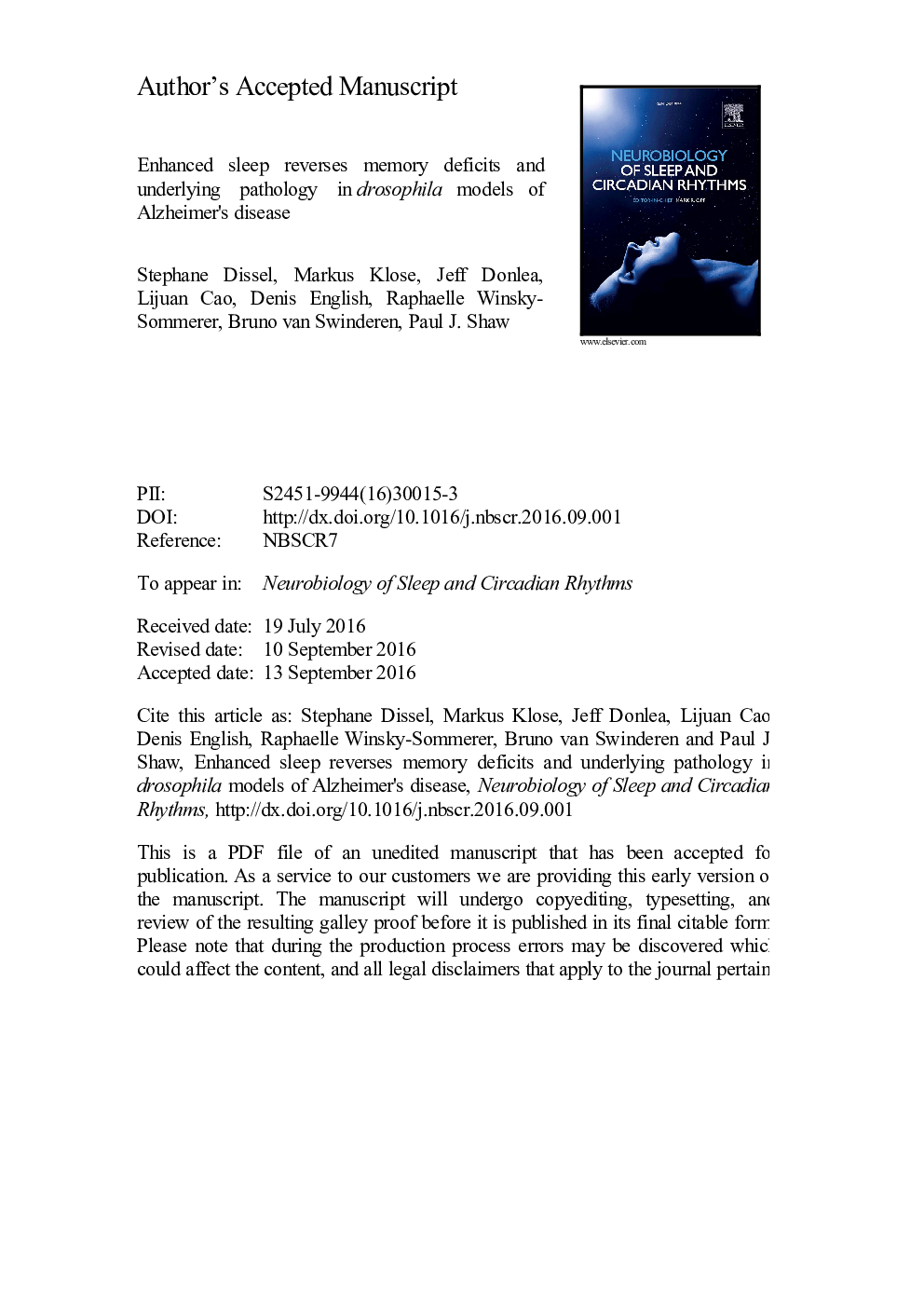| Article ID | Journal | Published Year | Pages | File Type |
|---|---|---|---|---|
| 5736149 | Neurobiology of Sleep and Circadian Rhythms | 2017 | 26 Pages |
Abstract
To test the hypothesis that sleep can reverse cognitive impairment during Alzheimer's disease, we enhanced sleep in flies either co-expressing human amyloid precursor protein and Beta-secretase (APP:BACE), or in flies expressing human tau. The ubiquitous expression of APP:BACE or human tau disrupted sleep. The sleep deficits could be reversed and sleep could be enhanced when flies were administered the GABA-A agonist 4,5,6,7-tetrahydroisoxazolo-[5,4-c]pyridine-3-ol (THIP). Expressing APP:BACE disrupted both Short-term memory (STM) and Long-term memory (LTM) as assessed using Aversive Phototaxic Suppression (APS) and courtship conditioning. Flies expressing APP:BACE also showed reduced levels of the synaptic protein discs large (DLG). Enhancing sleep in memory-impaired APP:BACE flies fully restored both STM and LTM and restored DLG levels. Sleep also restored STM to flies expressing human tau. Using live-brain imaging of individual clock neurons expressing both tau and the cAMP sensor Epac1-camps, we found that tau disrupted cAMP signaling. Importantly, enhancing sleep in flies expressing human tau restored proper cAMP signaling. Thus, we demonstrate that sleep can be used as a therapeutic to reverse deficits that accrue during the expression of toxic peptides associated with Alzheimer's disease.
Related Topics
Life Sciences
Neuroscience
Behavioral Neuroscience
Authors
Stephane Dissel, Markus Klose, Jeff Donlea, Lijuan Cao, Denis English, Raphaelle Winsky-Sommerer, Bruno van Swinderen, Paul J. Shaw,
